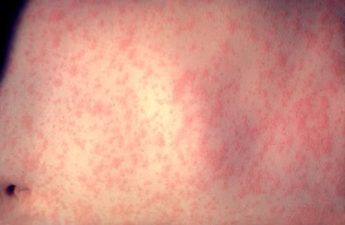
The flu shot is your best protection against the virus.
From the Pierce County Department of Health
TACOMA, Wash.—A Pierce County child under 5 years old died this past weekend from flu-related complications. The child had underlying health concerns that increased the child’s risk. This is the second flu-related death reported in Pierce County of the 2019-2020 season.
“Sadly, flu strains currently in circulation this season have hit the very young hard,” said Communicable Disease Control Division Director Nigel Turner. “When you get a flu shot, you strengthen the circle of protection around people who may be vulnerable to complications from the virus,” he said.
Children 5 and younger are among those most at risk for flu complications. So far this flu season, at least 19 other children in this age range have died because of the flu. That’s according to the Centers for Disease Control and prevention. CDC recommends flu shots for everyone 6 months and older. The Washington Vaccines for Children Program gives free vaccines to kids under age 19. Check out our calendar of free flu and other vaccines for children.
Keep in mind the vaccine may not become fully effective until two weeks after you get it. If you get a flu shot and still get the flu, you should experience fewer and shorter symptoms and are less likely to spread the virus.
What are flu symptoms?
The virus is much more than a bad cold. The flu can cause days of fever, cough, sore throat, and body aches. In some cases, the flu leads to death, even for healthy people. Flu-related deaths in Pierce County from the past three flu seasons:
- 2018-2019—42 deaths.
- 2017-2018—31 deaths.
- 2016-2017—50 deaths.
How does the flu spread?
Droplets carry the virus when people with the flu cough, sneeze, or talk. These droplets can infect you directly or through contact with contaminated surfaces or objects. Be sure to:
- Wash your hands often with soap or use an alcohol-based hand sanitizer.
- Cover your cough or sneeze.
- Stay home if you’re sick.
What are the side effects of a flu shot?
Every year, millions of people get flu vaccines—which public health experts carefully monitor. Most people get a flu shot with no problem. Side effects include soreness, redness, tenderness, or swelling at the spot of injection. These side effects are mild and short-lived, especially when compared to symptoms from a bad case of the flu. The flu vaccine cannot give you the flu.
When should I see a doctor?
Most people with the flu can recover at home with rest, lots of fluids, and non-aspirin fever reducers. People at high risk for flu complications should contact their healthcare provider early in the illness. See your healthcare provider for an evaluation if you:
- Have fever greater than 100.4 degrees that’s lasted more than four days (fevers may be intermittent).
- Cough up mucus tinged with blood.
- Have rattling chest sounds when taking a deep breath.
- Have fainting spells, dizziness and/or severe dry mouth.
- Urinate less, or babies have less than three wet diapers every 24 hours.
- Are pregnant and have flu symptoms.
- Are younger than age 5 or older than age 65.
- Have chronic medical conditions—diabetes, heart failure, cancer, etc.—or are in other high-risk groups for complications from the flu.
When should I call 911 or go to an emergency room?
Seek emergency medical attention if anyone has:
- Fast breathing or trouble breathing.
- Pain or pressure in the chest or abdomen.
- Bluish or gray skin color.
- Dehydration (dry mouth, no tears, no urination for more than eight hours).
- Severe or persistent vomiting.
- Trouble waking up or interacting.
- Sudden dizziness.
- Trouble talking in full sentences.
Where can I get a flu shot?
You can get a flu shot at most local pharmacies. Also, check with your healthcare provider about the vaccine. Learn more about where to get the vaccine and other flu facts at www.tpchd.org/flu.

